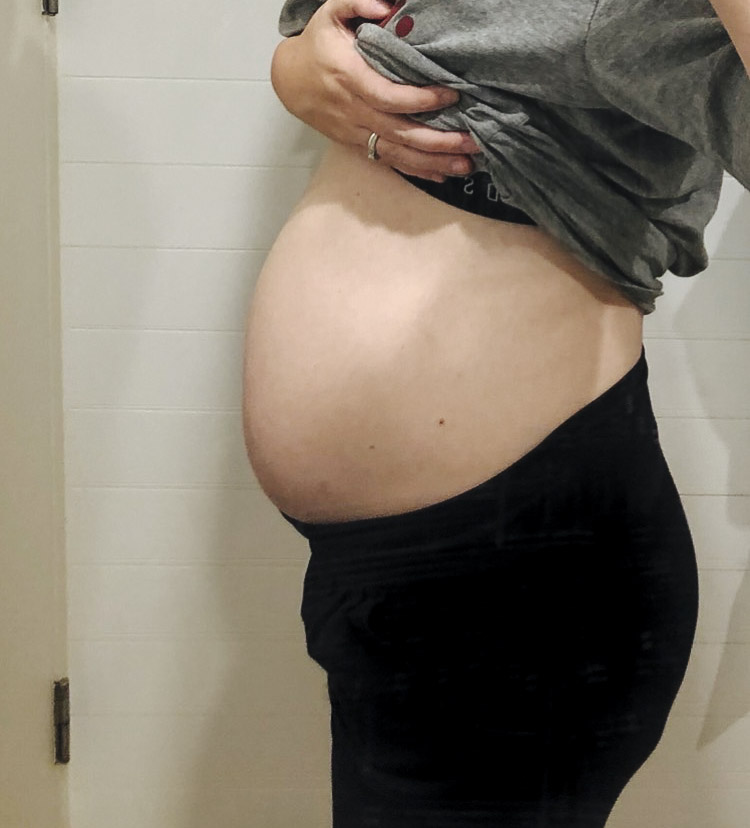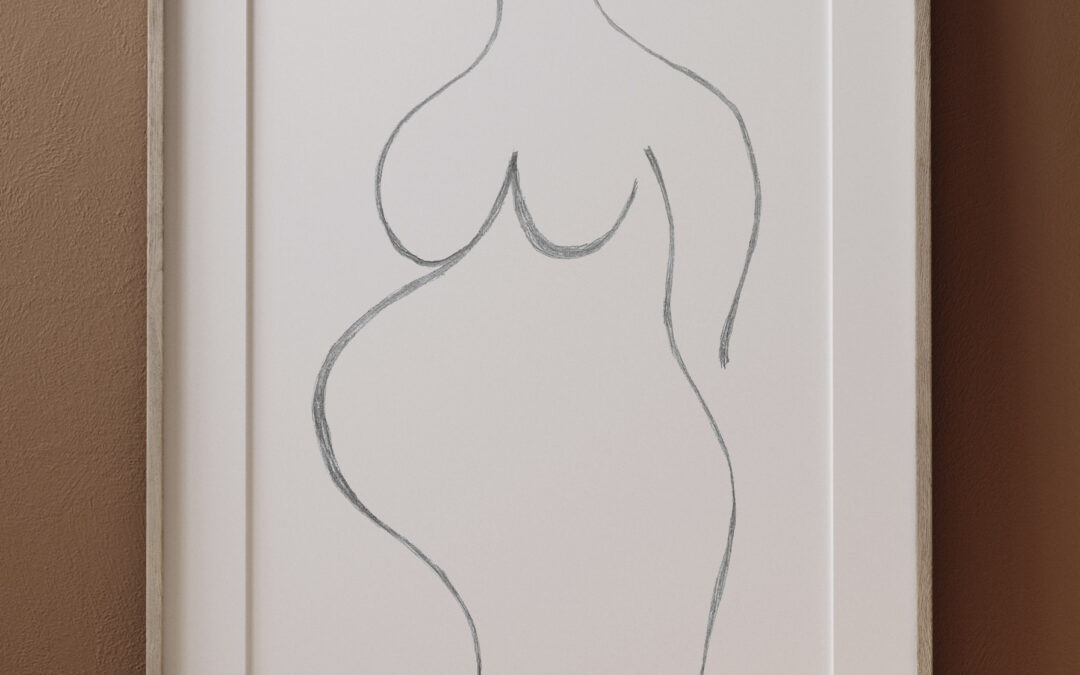Rachel Burke chats about her experiences with endo belly, an uncomfortable symptom of endometriosis in more than one way.
I distinctly remember being told that I would probably never be able to have children. I was in my mid-twenties and I had been bleeding persistently for over eight months. It was the type of bleeding that meant I had to buy tampons and pads in bulk. It was painful and utterly exhausting.
The gynaecologist’s office was covered in nude line drawings – you know the ones, almost tasteful in the context, but somehow a bit disconcerting. I remember sitting and staring at the lines as he was speaking to me trying to escape from what was happening.
We had tried different birth controls options (I got insufferable migraines from the pill, so that wasn’t an option), hormonal patches, more exercise, less exercise, a change in my diet (I was vegetarian at the time) but nothing seemed to be working. There had been talk of a blood transfusion and I had been considering it.
Test after test showed nothing except ovaries that were laden with benign cysts. According to the doctor, there was no reason that I should be constantly bleeding. I remembered he sighed, before explaining bluntly that I didn’t have many options left and I, in his opinion, was infertile and likely to stay that way.
I left the office and made my way home, stopping in the park next to my share house to drink a coffee. I watched the children playing on the swings and I broke down in tears. I couldn’t stop crying for the loss of something I hadn’t even known I wanted.
Fast forward 12 years, and I was sitting in another doctor’s office, again with nudes on the wall, discussing an upcoming surgery for endometriosis. This time, my surgeon was intent on preserving my fertility. The irony was not lost on me. How, after all this time, was that an option? How could we save something I had been told was already lost?
Turns out the first doctor had been wrong and missed my actual diagnosis all those years ago. I have endometriosis which can cause some issues with fertility for some, but doesn’t always.
One of my most recurrent symptoms from endometriosis is my extreme bloating. I think this symptom was masked a little by almost a decade on Depo Provera – a hormonal birth control similar to progesterone, injected every three months, which was the only thing I had found to help my bleeding. My ‘endo belly’ had been around for a while, before I even knew about endo itself.
I had always put my bloating down to gastro issues or a poor diet. The doctors had suspected IBS and I’d tried a variety of restrictive diets to see if they might help to no avail.
 When I look back at photos of myself now, I am sad that I let it continue for so long. By the end it was so extreme I often looked between four to six months pregnant sometimes for weeks at a time.
When I look back at photos of myself now, I am sad that I let it continue for so long. By the end it was so extreme I often looked between four to six months pregnant sometimes for weeks at a time.
I’m a big believer in never asking someone if they are pregnant. Unless this information is offered to you, or you see a baby’s head crowning and the pregnant person requires emergency assistance, I feel best to leave the questions well enough alone.
My experiences, however, lead me to believe that not all people feel this way. Many people I encountered when I was painfully bloated, and it was painful for me, simply felt it was their place to ask me if I was with child.
I’ve been asked this question by strangers on public transport, wait staff in restaurants, friends and acquaintances. One particular example has stayed with me.
Last year, my sister and I treated ourselves to a massage and facial. It was summer and I was heavily bloated. We were both sat in the lounge area with a few other people filling out the booking form with our details and confirming what package we had chosen online. The form was typical; age, health conditions, where did you hear about us? etc. We both completed it quickly and were happily chatting while drinking the complimentary green tea.
A moment later, the receptionist came out and found me to ask if I was sure I had chosen the correct package. I had a look at the form “Yep, that’s the one”.
She looked confused. Then very slowly and quite loudly asked; “Are you sure you wouldn’t prefer the pregnancy package?”
I stared at her blankly shaking my head.
Then she said it again, in case I hadn’t understood her the first time.
It felt like everyone in the waiting room was looking directly at me and my stomach.
I shook my head again, and said “No, I don’t want that…. and I’m not pregnant.”
I was so shocked. I had ticked ‘No’ on the form when it asked if I was or could be pregnant. But there were so many things wrong with this interaction, and others like it I had experienced.
What if I had recently had a miscarriage?
What if I had been struggling to get pregnant and just found out my last round of IVF had failed?
What if I had chosen to have an abortion?
What if I had a medical condition that made me bloated and self-conscious about my appearance?
What if I had recently lost a child?
I left the massage feeling less relaxed than when I walked in. I was angry, infuriated and upset.
Endometriosis is a cruel disease in many ways. The fact that it can cause pregnancy style bloating and questions surrounding fertility can be so difficult for those with the condition, not to mention the host of other symptoms that are often debilitating.
For anyone struggling with this at the moment, I feel you, I see you and I won’t be asking anything. I’ll let you decide how and when you want to talk about it because at the end of the day it is your body and your business.
It is my hope that others will do the same.
Sending love
Rach X
Written by,
Rachel Burke

